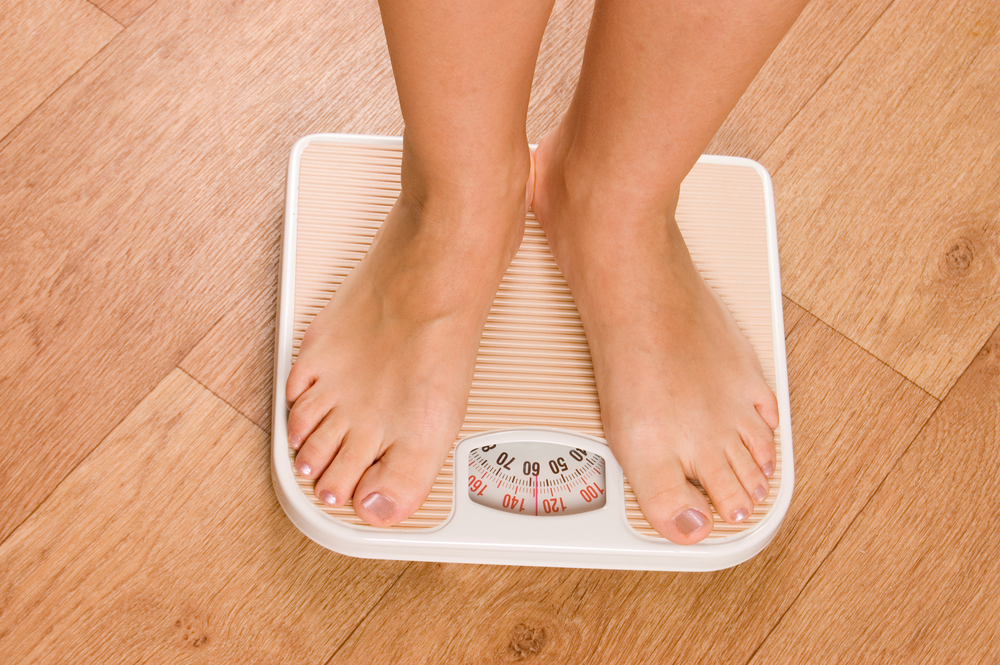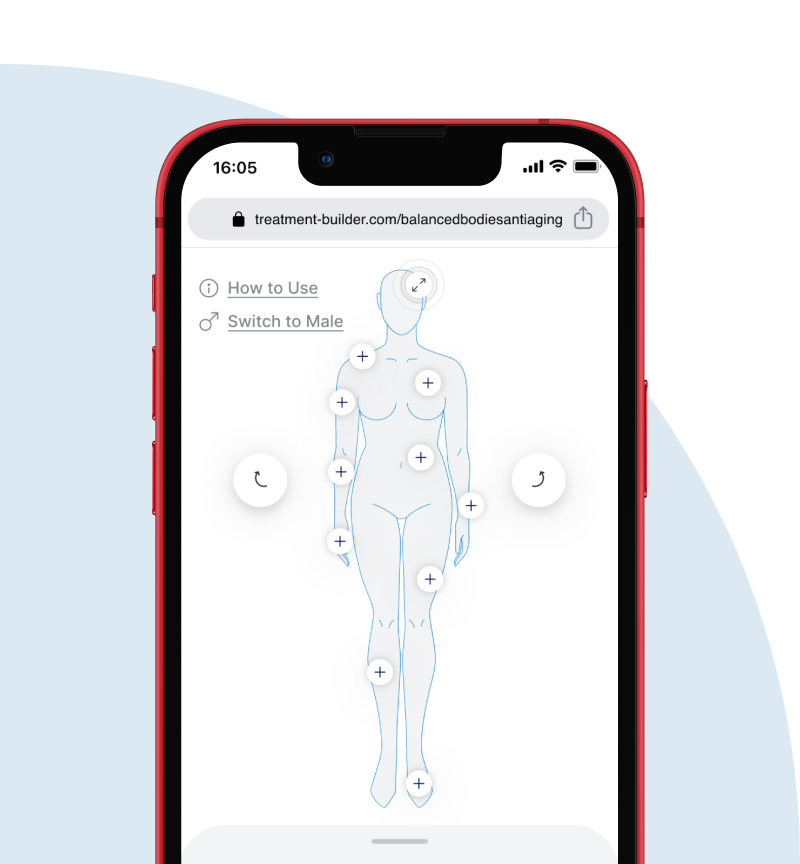
Trying to lose weight by yourself may be challenging if you have insulin resistance, diabetes, or other medical barriers that make it hard to burn fat. Fortunately, at Balanced Bodies Anti-Aging Clinic in Sandy Springs, GA, you can create a medical weight loss plan with the help of a doctor after a telehealth consultation.
What Are the Benefits of Online Medical Weight Loss?
Online medical weight loss is an ideal option for many people. Whether you are using an app to modify your diet, change your relationship with food, or stick to an exercise plan, several studies indicate people can lose weight more quickly when using online programs for weight loss. A physician-guided weight loss plan can be especially effective.
Enhance Accessibility
An online weight loss plan can enhance the accessibility of weight loss advice. In particular, many people may struggle with attending in-person weight loss clinics or support groups due to barriers such as child care, work schedules, and more. With a web platform or mobile application, it’s much easier for people to manage their weight loss journey within the limits of their schedules.
Maintain Motivation
Online weight loss plans can also help people maintain motivation. For many people, a weight loss journey will include many peaks and plateaus, and it can be hard for people to maintain motivation during plateaus. However, using an online tool can help you track your progress so you can maintain your internal motivation to continue with your weight loss plan.
Personalized Coaching
Online weight loss can also give you access to personalized coaching based on body composition analysis, nutritionist consultations, telehealth consultations, and other medical resources. Personalized coaching is particularly important since your body composition, hormones, and other factors may affect how well diets and exercise plans work to help you lose weight.
What Is Involved In Weight Loss Programs?
Weight loss programs can be customized to your precise needs, your schedule, and other preferences you may have, such as using weight loss medications or supplements. Overall, a weight loss program will be a series of appointments with a doctor who is monitoring the progress of your weight loss journey. Sometimes, weight loss programs can last for six months or more, depending on your weight loss goals.
Telehealth Consultation
For many people, the first step of a weight loss program is a consultation. Scheduling your consultation via telehealth may be a good option for you if you are exploring the strategies that are involved in your weight loss plan. During a telehealth appointment, you can ask a doctor about recommendations for medications, diet plans, and exercise regimens so you have a better idea of what will be involved in your weight loss program.
After your telehealth consultation, you may or may not need to attend appointments in person. Ultimately, this will depend on your doctor-recommended weight loss plan. For example, if you are using injectable weight loss medication, you will need to attend in-person appointments occasionally. You may also need to complete blood work every once in a while if your doctor wants to monitor your overall health or blood sugar throughout your weight loss journey.
Full Body Composition Analysis
For many people, full body composition analysis is an essential step in creating an effective diet and exercise plan. In particular, although BMI is used to assess obesity, this is an imperfect measurement that does not factor in the ratio of muscles to body fat. For example, many muscular athletes who have a low level of body fat are still considered obese according to BMI measurements.
This is a huge part of why a full body composition analysis can give your doctor a better understanding of the ratio of water, muscle, and fat in your body. This information will help a doctor identify the best method to target unwanted fat on the body and improve lean for overall better health and weight management.
Weight Loss Medication
For patients who are obese or significantly overweight, weight loss medication such as Semaglutide and Tirzepatide Plus are game-changers. Both of these medications can help patients lose a large amount of body fat, lower blood sugar, improve A1C levels, control food cravings, and suppress their appetite. Patients using these weight loss medications can lose up to 20% of their total body weight.
Some other weight loss medications may include B12 injections, fat-burning supplements, or other vitamins and peptides that can improve fat metabolism. Some of these medications may be available in oral form if that is your preference.
Nutritionist Consultation
A consultation with a nutritionist may be essential if you need to significantly alter your diet. A nutritionist can teach you how to read nutrition labels, cut calories, replace unhealthy carbohydrates with healthy carbohydrates, and much more.
Importantly, a nutritionist can also help you modify a diet plan that will optimize your fat metabolism. For example, a nutritionist may recommend eating six small meals a day rather than three large ones to optimize the fat-burning ability of your body.
Mobile and Web App
Finally, your weight loss program will also include access to a mobile and web app that will allow you to track your meals, caloric intake, exercise, sleep pattern, and water intake. These are all important elements to monitor when you are trying to lose weight healthily.
What Are Keys for Losing Weight?
Although many people say the keys to losing weight are diet and exercise, the fact of the matter is that psychological factors are just as essential. For example, internal motivations for losing weight, your feelings about food consumption, and your relationship with food have all been scientifically proven to be crucial for weight loss.
Additionally, the keys to losing weight can include consistency and fully committing to your weight loss program. By consistently following dietary and exercise guidelines, you will continue to lose weight even if you seemingly hit a plateau. Fully committing to new lifestyle changes will also help you maintain your desired body weight in the future.
How Does Diet Affect Weight Loss?
Your diet is a major factor in weight loss. Ideally, your diet should provide your body with all the vitamins and minerals needed for healthy functioning. An unhealthy diet that is rich in grease, salt, and sugar can negatively impact your weight loss journey. By focusing on whole grains, lean meats, and fruits and vegetables, your weight loss will be more consistent.
Is There a Best Diet?
Several diets are popular for weight loss, such as a low-carb diet. However, everybody has a different body, so diets that work for some people may not work for you. It’s always best to follow a nutritionist’s advice when you are creating a diet for your weight loss goals.
How Does Exercise Affect Weight Loss?
Exercise is essential for weight loss for two reasons. Not only does exercise increase your metabolism so you can burn body fat, but it also helps build muscles that will aid in your weight loss journey as well. Consistent exercise and alternating exercise plans are generally the most effective way to lose weight.
Is High-Intensity Cardio Best?
Some people believe that high-intensity cardio for every exercise is the best method to lose weight. However, doctors and weight loss coaches know that alternating the intensity of your cardio exercise is generally the best way to lose weight and also allow your body recovery time. For example, it may be a good idea to alternate high-intensity cardio exercise with low-intensity exercises such as yoga or walking.
The Math of Weight Loss: Calorie Deficit
There is a lot of math that goes into medical weight loss. Perhaps most important is calculating the correct calorie deficit you will need to steadily lose weight. Physicians generally recommend losing about one pound of fat a week to maintain steady, healthy weight loss. To lose one pound, you must have a calorie deficit of 3,500 calories, usually through a combination of cutting calories in meals and burning calories through exercise.
Why Your Basal Metabolic Rate Matters
When physicians create a weight loss plan, part of the calculations used may be the basal metabolic rate. The basal metabolic rate is the number of calories the body needs each day to perform basic functions. From there, doctors will use other factors to identify the ideal number of calories you should consume for weight loss or weight management based on your age, activity level, and gender.
Schedule Your Telehealth Consultation Today
If you can’t seem to lose unwanted weight by yourself, it may be time to ask a physician for guidance. A medical weight loss program will include weight loss medications, body composition analysis, and coaching that will help you lose weight steadily. Reach out to Balanced Bodies Anti-Aging Clinic in Sandy Springs, GA, and Lawrenceville, GA to schedule your online consultation today.


